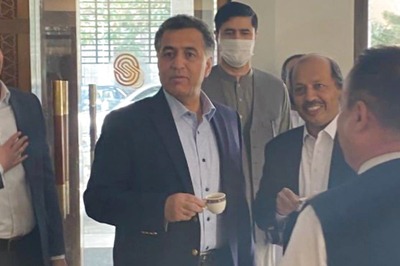
views
As Bengaluru observes a day-long bandh over the release of Cauvery water to neighbouring state Tamil Nadu, the police personnel deployed in the city were allegedly served breakfast with a dead rat in it. The hotel owner, who supplied the food for the cops, has been booked.
According to Hindustan Times, a dead rat was found in the breakfast served to police assigned on security duty in Bengaluru amid a bandh and protests called by farmers over the Cauvery water dispute following which a notice was issued against the private hotel that supplied the food.
“Today a dead rat was found in one of the breakfast packets from the meals supplied to the police assigned for duty in the ongoing Bengaluru Bandh and protests in the Cauvery water dispute,” HT quoted Joint Commissioner of Traffic Police Anucheth.
After the incident came to light and sparked outrage, the private hotel that supplied the food for the security personnel was sent a notice and was later booked on criminal charges.
Notably, nobody consumed the meal and the incident came to light before anyone could eat that.
Bengaluru Bandh over Cauvery Water Dispute
Meanwhile, the Bengaluru bandh called by various organisations over the Cauvery River water dispute evoked partial response on Tuesday, as most of the public services functioned normally but fewer people than usual ventured out.
‘Karnataka Jala Samrakshana Samiti’, an umbrella outfit of farmers’ associations and other organisations led by Kuruburu Shanthakumar, had given the call for today’s dawn to dusk (6 am to 6 pm) shutdown.
Several activists of pro-Kannada organisations were also whisked away by the police at Town Hall, as they gathered there to stage a protest.
Farmers’ leaders and pro-Kannada activists hit out at the government for allegedly using police force to curtail the protests and the bandh.
As far as the services are concerned, all schools and colleges in the city remained shut while the cab services, autos, and hotels/restaurants were seen operating, drivers and hotel operators said that not many people patronised the services.




















Comments
0 comment